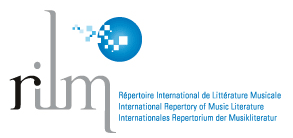<i>Aparecida</i> (1986), by Carlos Mastropietro.
Keywords:
Argentine contemporary music, Carlos Mastropietro, aesthetics of musicAbstract
This paper studies Aparecida (1986) by the Argentine composer Carlos Mastropietro (1958) in relation to the aesthetic trends that articulated the Argentine contemporary music scene during the first half of the 20th century and to the critical revision that emerged from the Latin American Center of High Musical Studies (1962-1970) at the Instituto Di Tella.
Then we examine, on the one hand, his aesthetic and technical ideas around the ‘nondomestication’ of music and structural ‘fragility’, and, on the other, the function of his ‘bad memory’ that precludes textual and stylistic quotes. Finally, we analyze the piece structurally in order to characterize the resources used and to link them to his aesthetic assumptions.
Downloads
Published
Issue
Section
License
ATTRIBUTION-NONCOMMERCIAL 4.0 INTERNATIONAL
https://creativecommons.org/licenses/by-nc/4.0/
You are free to:
- Share — copy and redistribute the material in any medium or format
- Adapt — remix, transform, and build upon the material
- The licensor cannot revoke these freedoms as long as you follow the license terms.
Under the following terms:
- Attribution — You must give appropriate credit , provide a link to the license, and indicate if changes were made . You may do so in any reasonable manner, but not in any way that suggests the licensor endorses you or your use.
- NonCommercial — You may not use the material for commercial purposes .
- No additional restrictions — You may not apply legal terms or technological measures that legally restrict others from doing anything the license permits.
Notices:
You do not have to comply with the license for elements of the material in the public domain or where your use is permitted by an applicable exception or limitation .
No warranties are given. The license may not give you all of the permissions necessary for your intended use. For example, other rights such as publicity, privacy, or moral rightsmay limit how you use the material.







